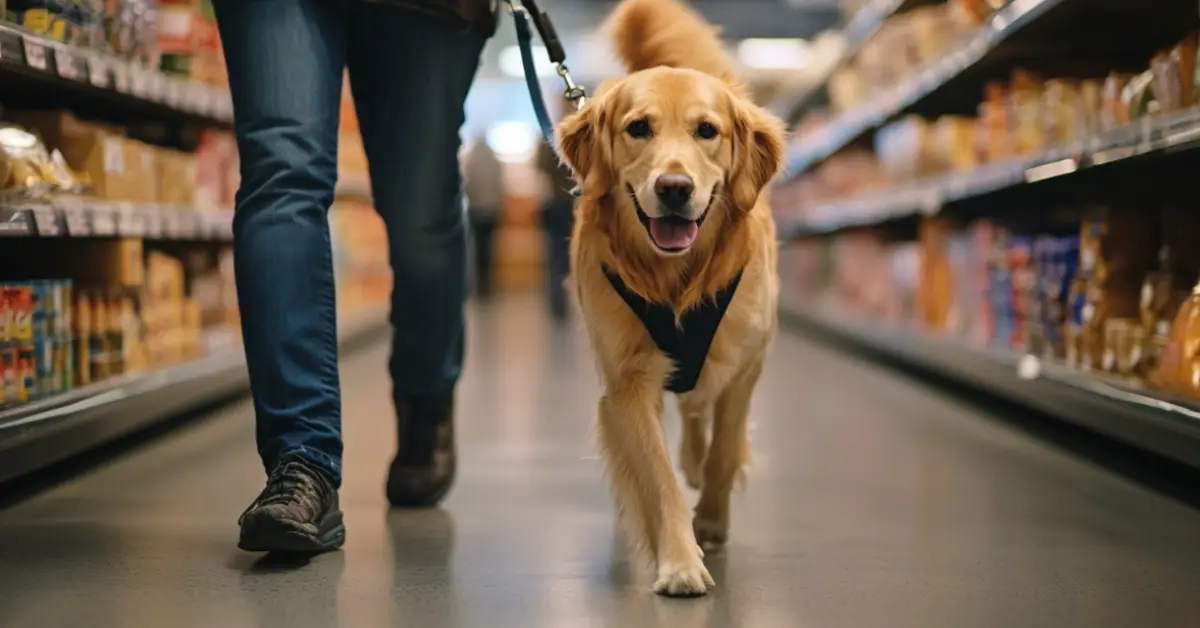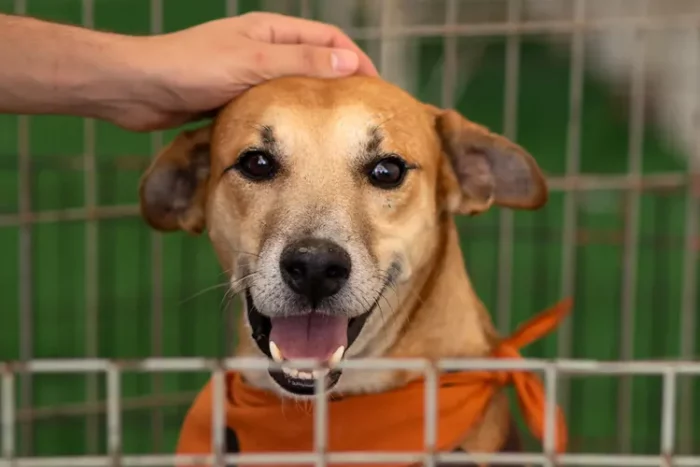How to Find a Good Dog Breeder

Bringing a new furry companion into your life is a huge decision, and finding the right breeder can play a huge part when it comes to ensuring a healthy and happy companion.
In this article, we will walk you through the steps to find a responsible breeder, while also highlighting the importance of considering adoption as a compassionate alternative!
There are many breeders, but not all are ethical and reputable. Therefore, staying updated and educated on how to make the most informed decision for you and your family can go a long way!
Table of contents
1. Research the Breed
Before taking the time and diving into finding a good breeder, research the breed you’re looking for.
Every breed is unique and has needs that require a certain lifestyle and ownership. Knowing what you are ready for and what type of temperament would fit into your family can set you up for success and help you understand your new pup on a deeper level!
It is essential to research and select the breed that matches your routine, physical lifestyle, preferences, and general capabilities.
Some aspects of your life that you may want to evaluate before you research your breed should be:
- Lifestyle – How active are you? How much of your life do you plan on involving your dog in?
- Living Situation – Are you in an apartment or a house with a yard? With roommates or living alone? Is everyone in your family on board with adding a dog to your family?
- Budget – Would you be able to pay for a bigger dog’s food/vet budget? A dog can cost up to $1,825 in the first year alone!
- Time Commitment – Some breeds need much more of your daily attention than others, and knowing how much time you can commit each day to training and exercise plays a huge role.
- Allergies – Do you have any allergies that may be affected by a dog? Most allergies to dogs are not hair-related, but if dog hair bothers you, you may want to go with a breed that has minimal shedding.
These questions should be evaluated thoroughly. Once you know the answers, it’s crucial to see if they match the breed you were looking at. If they don’t, consider further research into breeds that may be a better match!
2. Seek Out Recommendations and Reviews
Reaching out to valued members of your communities (well-rated vets, trainers, and groomers) can go a long way! These professionals typically can steer you in the right direction of finding a good breeder and giving some additional insight into what dog breed may best match your situation. Creating relationships with these professionals can also be beneficial, so you know who you can trust once your new family member does come into your life!
Avoid recommendations from people you don’t know or professionals who lack experience in the dog community. There is so much information out there; choose your guidance wisely!
Most breeders have social media. Using their pages to find previous owners who have bought from them before can also be a good way to seek out recommendations.
3. Visit Websites That Have Good Reputation
There are tons of great resources out there that can help steer you in the right direction of knowing what breeders are out there. The American Kennel Club (AKC) and the United Kennel Club (UKC) are reputable organizations that list breeders on their website by breed and location.
Even though these organizations are reputable, it is important to note that the requirements for a breeder to be listed on these websites are not very strict, and these organizations do not contact in-person visits to ensure accuracy. It is advised to use websites like these as a resource to find the breeders who list their dogs as AKC and UKC certified, and conduct your own research from there!
4. Interview the Breeder
Once you feel confident that you have found the right fit for a breeder, it’s time to get to know them!
Reach out with questions you want to ask them! These questions should gauge their ethics, policies, knowledge of the breed, etc.
Some good questions you may want to ask a potential dog breeder are:
- How long have you been breeding this breed?
- What type of health testing do you conduct on your parent dogs?
- Are the puppies vaccinated and dewormed?
- Do you have any references or reviews from previous puppy owners?
- Can I visit and meet the parents and puppies?
- How do you socialize your puppies? Who comes in contact with them during the first 8 weeks?
In addition to these basic questions, now is your time to ask anything else that might be on your mind. There are no silly questions when it comes to finding the right breeder, so ask away!
It may seem overkill to ask many questions, but any breeder annoyed or frustrated while answering may not be a good fit anyway! These are common questions that any reputable breeder would most likely be happy to answer – especially since it shows you are a serious and prepared future puppy parent!
During an interview with a breeder, it’s also crucial to trust your instincts! If anything they say or do leaves a bad taste in your mouth, it’s time to move on to the next!
It’s common for a good breeder to ask YOU a ton of questions as well to ensure that you would be a good fit for one of their pups! They will also typically never pressure you into buying a dog, as they might even have a waiting list for their puppies!
If you feel good about the breeder you spoke with, it’s time to move to the exciting part: meeting in person!
5. Conduct In-Person Visits
Now it’s time to meet the breeder in person! In some cases, the puppies may not be born yet, but if they are, it’s time to meet the puppies and parents, too.
Seeing the dogs’ living conditions and their routine through your own eyes can provide valuable insight into the breeders’ practices. Pay close attention to the dogs and puppies to make sure there are no red flags during your visit.
6. Review Contracts Carefully
Once you feel ready to make your choice, it’s important to carefully review the documents and contracts that get sent your way!
Contracts from a good breeder should include:
- Health and behavior guarantees – Of course, there is no way to know if a random behavior or health concern arises, but a good breeder would do everything in their power to breed healthy dogs, both mentally and physically.
- Spay/neuter requirements – Most breeders would require their dogs to be spayed and neutered to prevent unwanted pregnancies and to reduce irresponsible breeding.
- Thorough return policies – Ideally, their policy would be to return the dog to THEM in case you can no longer care for the dog, as they would typically have a list of people wanting to take the dog in these cases!
If the contract seems too vague or doesn’t cover items to the ones above, investigate further. A breeder who is too casual about homing their dogs without the proper documentation might not be a breeder you want to stick with.
7. How to Tell a Puppy Mill from a Reputable Breeder
Knowing the difference between a puppy mill and a breeder might be one of the most important things to understand in finding the right breeder.
A puppy mill is a commercial facility that focuses on breeding as many dogs as possible for profit and is incredibly unregulated. The conditions of a puppy mill would be dirty, unethical, and unorganized. These factors can cause many issues with the puppies’ health and would have long-lasting effects on the dogs raised in a facility like this.
During your breeder search process, look out for red flags that indicate they may not care about the well-being of their dogs and puppies.
Some red flags that you might be dealing with a puppy mill are:
- They won’t share information about the puppies or parents with you, or seem like they withhold information.
- They have many cages stacked on each other in their facility.
- They come up with excuses as to why you can’t meet the puppies’ parents (like “they are out of town,” or “resting in another room.”)
- They offer to send the puppy to you before they reach the mature weaning age (6-8 weeks)
- They offer to drive or fly the dog to you without meeting or interviewing you first.
- They don’t take too much interest in you, your living situations, or your lifestyle.
- They offer and sell a range of different breeds on their website or social media pages.
If you find yourself in a situation where you suspect the breeder you’re speaking with may be a puppy mill, it’s time to move on and find someone else.
It is also important to note that there are several websites that scam people every day by trying to get money or down payments from you BEFORE you meet the dog. Therefore, it is crucial to follow the golden rule: Don’t pay for a puppy that you haven’t met yet!
8. Consider Adoption
While finding a good breeder is important, it is equally important to consider the compassionate alternative: adopting a dog who needs a home!
Whether you are looking for a young puppy or an adult dog, there are amazing rescues and shelters that can still pair you with your dream dog.
Not only do shelters and rescues tend to have an abundance of young, healthy puppies, but they also have tons of adult dogs! If you evaluate your lifestyle and what kind of dog would fit best into your home, you may find that an adult dog is a much better fit than a young puppy. Puppies can take a lot of patience, extra time, and work. This is where adopting an older and more established dog can have its benefits!
If you’re still looking around for your new family member, check out your local rescues and shelters pages for their available dogs and puppies! You might just fall in love!
If you still choose to go through a breeder to find your new dog, staying educated and prepared helps battle the problem of dog population. Puppy mills and unethical backyard breeding are huge contributors to dogs who end up in shelters in the first place. Additionally, knowing the type of dog that would fit your lifestyle can prevent the unfortunate reality of rehoming in the future.
While finding the right breeder can be a lengthy process, it will all be worth it when you bring home your new best friend!
About the Author: Shannen Standiford is a trainer and applied animal behavior consultant in San Diego, California. She specializes in service animal training, behavioral issues such as separation anxiety, reactivity, aggression, and more. She is a supporting member of the IAABC and opened her own 1:1 training business under the name Pups on the Coast to help others understand their dog on a deeper level and create a bond with their pet that they’ve always dreamed about.
Latest Posts

Can You Bring a Service Dog to the Hospital?
Yes, you can bring your service dog to the hospital. ADA service dog laws protect your right to be accompanied by your service dog in hospitals, just as in other public places. However, there are some important exceptions you should be aware of — particularly in sterile environments like operating rooms where patient safety concerns […]

Read More

How to Select Treats During Service Dog Training
The key to effective service dog training is matching your treats to the task: use high-value treats for teaching crucial skills like medical alerts or guide work, medium-value treats for practice sessions, and basic treats for everyday good behavior. There is an incredible variety of service dog tasks that help with qualifying disabilities, from acting […]

Read More

Can You Bring a Service Dog to a Grocery Store?
Yes! Service dogs can go into any grocery store with you, even if the store has a no-pets policy. It’s that simple: it’s your right under the Americans with Disabilities Act. If you can go somewhere in the store, your service dog can, too. In some cases, service dogs can even ride in the shopping […]

Read More






